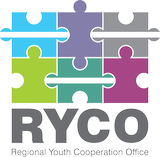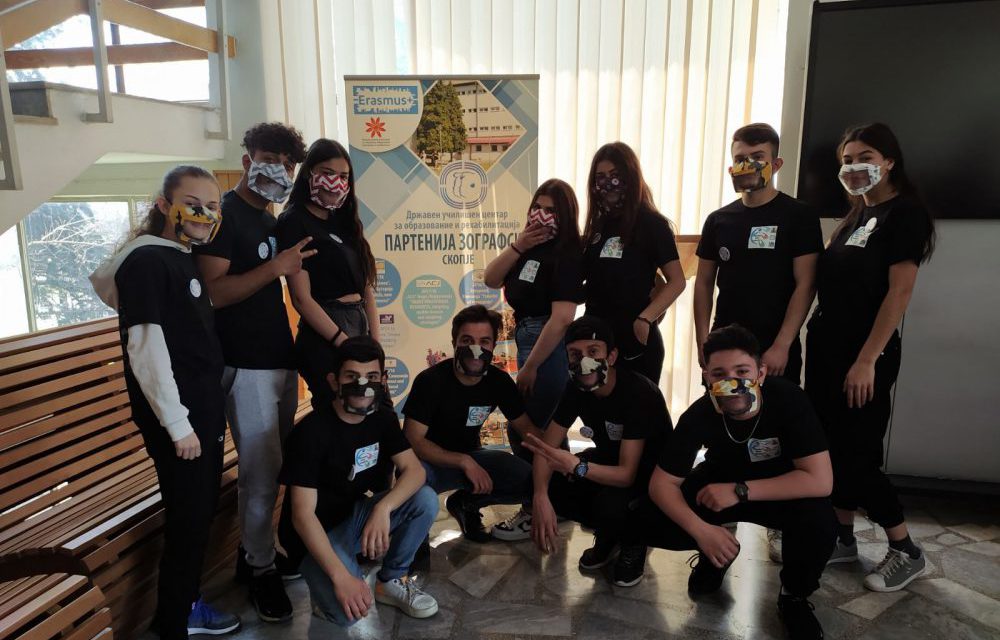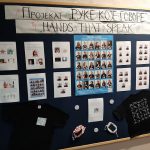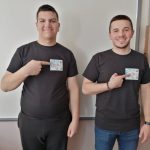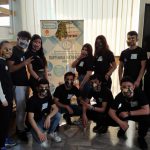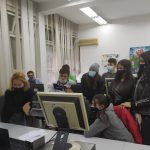NORTH MACEDONIA/SERBIA – Within the third RYCO Open Call for Project Proposals, supported by the Federal Republic of Germany, Škola za oštećene sluhom-nagluve “Stefan Dečanski” from Serbia in partnership with State School Center for Education and Rehabilitation “Partenija Zografski” from North Macedonia implemented the project “Hands that speak”, which took place from January 2020 to March 2021.
The project focused on fostering social inclusion among the young participants that took part in the youth exchange, which due to the Covid-19 development took place mostly in an online setting. Despite the circumstances, the project managed to successfully engage youth and enable an inclusive environment where the participants felt motivated and actively involved. Youth connected through using sign language and overcoming barriers posed to communication and cooperation.
“I would love to continue hanging out with my new friends and teaching them more words in sign language,” Ms Suzana Mrkonjić, project participant, stated.
Project Coordinator Ms Iva Urdarević shared with us her impressions from the activities, highlighting that through the “Hands that speak” project youth had the opportunity to become peer educators and learn from each other.
“In everyday life, hard of hearing individuals face numerous difficulties in communicating with their peers and fellows. Knowing sign language can represent another interesting way of communicating, it has its advantages, so for example it makes it easier to communicate when we are physically distant from the interlocutor. By working together, through mutual cooperation, respect and tolerance and with a little goodwill, we can overcome all barriers in communication. RYCO has recognized the importance of implementing this project and we are thankful for the support,” Ms Urdarević emphasized.
While enjoying the project activities, youth from North Macedonia and Serbia overcame various barriers and stereotypes and made new life-long friendships and connections.
“If we want to break the boundaries we need to communicate and one way of doing that is by using sign language,” Mr Martin Stojkovski, project participant, underlined.
Speaking of lessons learned and messages to be shared with other peers from the region, Mr Ibrahim Shakirov, another project participant, added: “Our impressions are great. I want to convey sign language and I rejoice in new friendships. New friendships make me happier. My message is that as many people as possible should get to know sign language as the key for understanding the world of silence.”
Learning from and about each other, socializing, networking and working together to overcome any communication barrier, the young participants enhanced their cooperation, intercultural dialogue and skills. They learned about the importance of diversity and the benefits of working together despite differences and challenges.
“I really loved being a part of this project and meeting friends who taught me the basics sign language. Now I can teach others sign language and will be able to assist a person in case of need,” Mr Uroš Knežević, project participant, concluded.


